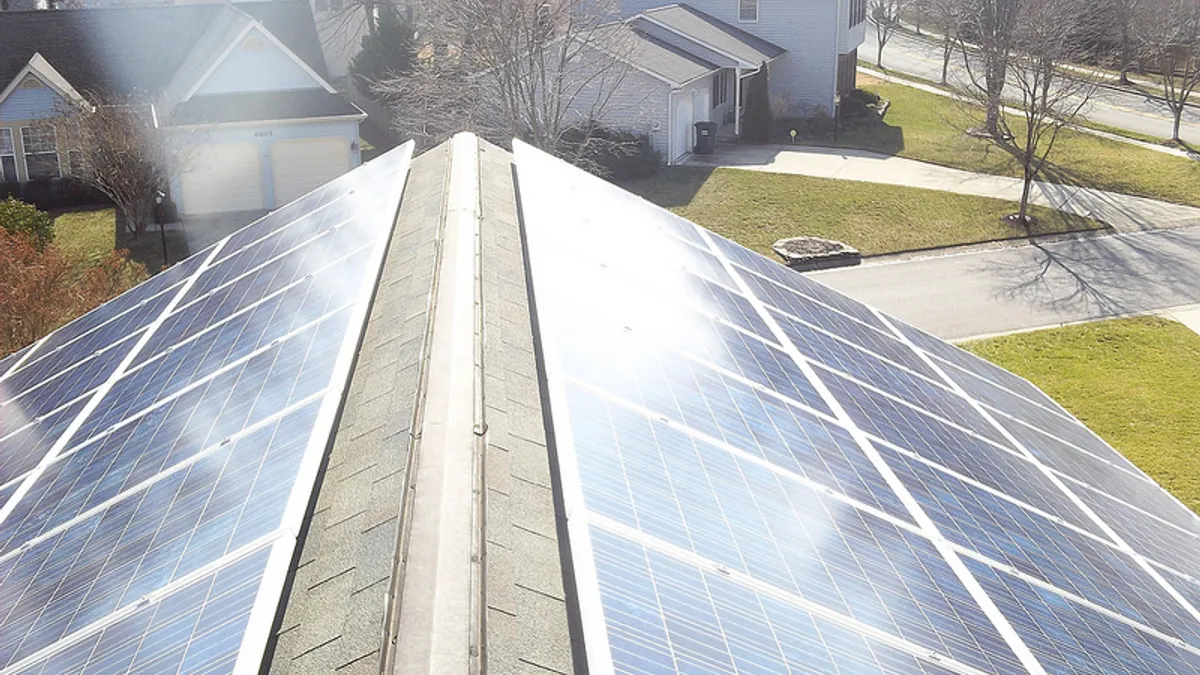Dive Brief:
- The growth of distributed resources and energy efficiency could drive down utility revenue by $48 billion a year, according to new research from Accenture.
- Utility executives are increasingly worried by the trend, with the study finding 61% saying they expect significant or moderate revenue reductions as a result of distributed generation.
- Still, Accenture held back from endorsing the utility "death spiral" idea, saying it would be unlikely and uneconomic for a large number of consumers to leave the grid entirely.
Dive Insight:
The continued growth of distributed energy resources and energy efficiency measures could cause significant demand disruption and drive down utilities’ revenues by up to $48 billion a year in the United States according to new research from Accenture.
"The most likely scenario in the next 10 years could lead to revenue losses at the lower end of our scale, $18 billion a year in the U.S. ... caused by a moderate reduction in load on the grid network,” said Valentin de Miguel, global managing director of Accenture Smart Grid Services. “This is because adoption of energy efficiency and distributed generation will become possible without subsidies, which will lead to greater market penetration."
While the firm stopped short of endorsing the utility "death spiral" idea, where consumers going off the grid implodes utility revenue, the research does show executives are worried.
"Utilities executives are notably more concerned about the impact of these technologies on future revenue streams, with 61% saying that they expect significant or moderate revenue reductions as a result of distributed generation, such as solar PV, compared to 43% last year," the firm said.
Almost 80% of utility executives believe it won’t be cost-effective for consumers to go off-grid without any subsidies until 2030 or beyond, the research found. And in addition, by 2035, just 12% of customers in North America are expected to become energy self-sufficient.














